Table of contents
Do you know what the benefits of meditation are?
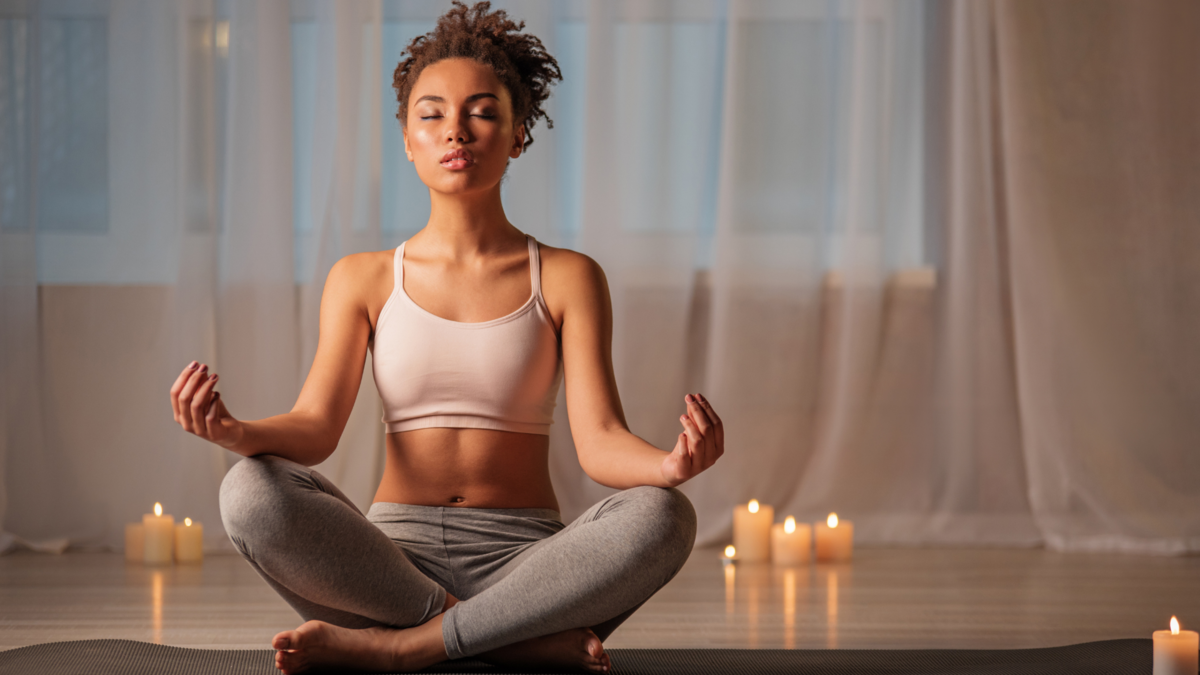
It is hard to find anyone nowadays who has not heard about meditation. It is a practice so widespread around the world that, even those who do not know how it works, have seen or heard about the benefits and exercises that involve this lifestyle.
This ancient practice increasingly gains followers around the world to bring something that the human being seeks since the beginning: balance. Who does not want to have a balanced life, with your body, mind and spirit in total harmony? This is the main concept of meditation, but there are numerous benefits and information that you need to know about this practice.
In this article, we tell you everything for those who want to know meditation in depth, what are the types, exercises, benefits and how to start. See now!
Understanding meditation
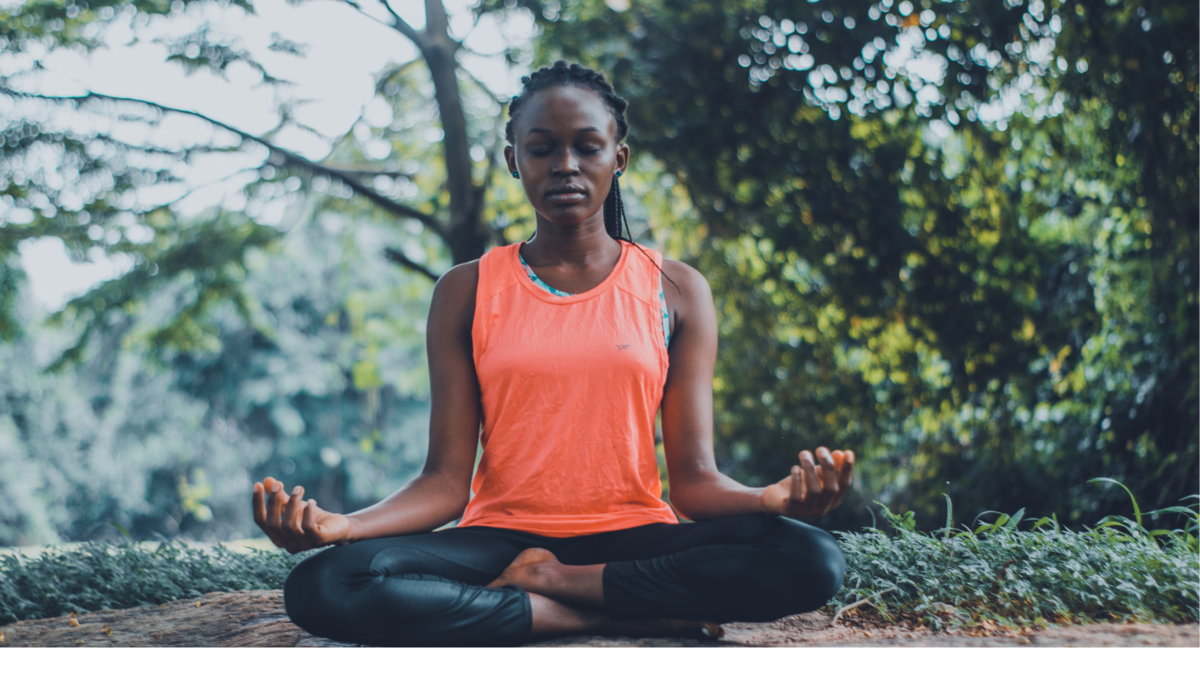
For many, meditation may be sitting in the lotus position, standing still for a while with your eyes closed and making sounds with your mouth. Seen from the outside, perhaps, this is a good definition, but meditation is an ancient practice that crosses the boundaries between religions and goes into the study of the human psyche.
Below, learn more about this practice, where it came from and how it has survived to this day, being popular around the world and adapted by various religions and people.
Source
The first records of meditation were found in various artifacts in India, dating back to 5000 B.C. And, at that time, meditation was known as tantra. The act of meditation is present in several religions between the 5th and 6th century B.C., and other forms of meditation were developed in China and India.
St. Augustine, in Christian belief, was an assiduous practitioner of meditation to attain connection with the divine. The silk route helped take Zen from India to other Asian countries. In the 18th century Zen was the main object of study of great philosophers and thinkers, being used as a basis for the study of psychology as we know it today.
Definition
From Buddhist practitioners to influence in Judaism, Christianity and even the great philosophers who influenced the basis of psychology, meditation is present in many areas of human life. Before, it was a way to connect with spirituality and develop your spirit; today, it helps to combat stress and mental illness.
Meditation is the act of forcing the muscularity of your concentration. The goal of meditation is to achieve focus and full concentration, expelling the rambling from your conscious mind. By strengthening your conscious mind, you exercise mastery over your thoughts, have full surrender to the moment and the act that is happening, without thinking about anything else.
Types
The goal is to achieve full concentration and relaxation, however, to achieve these goals, there are several techniques that can be adopted as the means to an end. These following 5 techniques can be done individually or in combination, just as you feel best:
- Indu Meditation: One form is transcendental, it helps to reach the various layers of the mind. Another type is Mantra, better known as "OM", which helps to reach the meditative state and its vibration induces relaxation.
- Buddhist Meditation: Vipassana, which is the ability to see reality clearly and full attention to posture, body sensations, mental and natural state. Another form is Zazen, sitting in the lotus position, paying attention to the body and the movement of air, experiencing the present, and feeling the whole around you.
- Chinese Meditation: The first, Qi gong, seeks health through meditation with exercises that strengthen the body and mind through the mobilization of subtle energy. The second is Taoist: sitting in calm and transformation of inner energy, focusing on the self and manifesting the forces from the inside out.
- Christian Meditation: One of them is the sitting with God, consists of contemplating God in a quiet and silent place. Another form is the contemplative reading, which is the interpretation of the teachings of the Bible.
- Guided Meditation: It is the most current and contemporary, it unites all forms of meditation in order to achieve different goals. The idea is to listen to a calm and relaxed audio in order to achieve trance and be able to feel the inner voice, transcending physical barriers to achieve transformation.
Practice
The practice of meditation can vary according to each type, the ideal is for you to test and practice all of them to identify which generates more identification. However, to all of them, some practices are common to help in the connection:
- Attention and concentration - It may seem simple, but it is not easy. The mind at this time usually brings many issues and images to distract and this can discourage, but continue to focus, with practice will get easier.
- Relaxed breathing - In the first moment, focus a lot on your breathing, feel the air going in and out of your lungs all the way back and forth. This will help you focus and also oxygenate your brain properly.
- A peaceful environment - Reserve a place where you can leave the day to day problems out the door, have a conversation with the people who live with you and explain how important this practice is to you, and if they can help, keeping as quiet as possible.
- A comfortable position - Comfort is an important ally for those who are beginning. Some positions require practice and constancy to be executed, so in the beginning stay in a way that does not require so much of your body and go increasing gradually.
- Open attitude - Be aware that you will not levitate in the first meditation, the practice is precisely to achieve balance between body and mind. So, this is a process similar to a marathon and not a 100 meter run. Keep a positive attitude and do not be discouraged by the difficulty.
Mental benefits of meditation
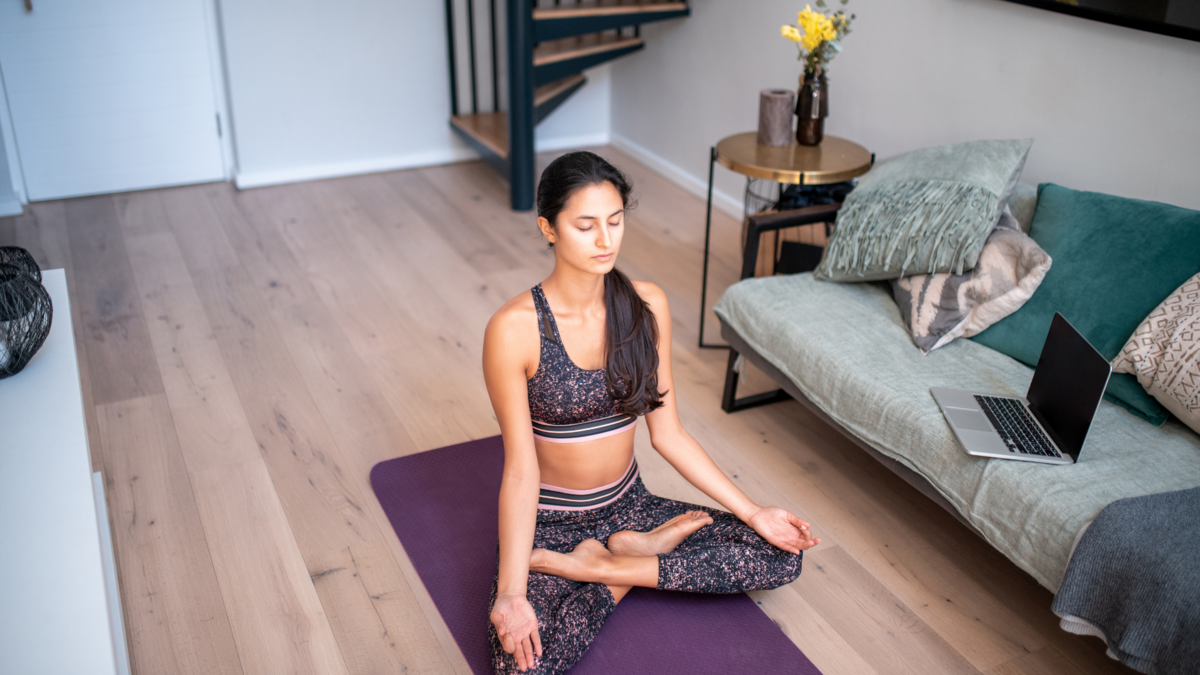
In the XVIII century, meditation became the target of studies by philosophers, such as Schopenhauer, Voltaire and, even a little further on, by Friedrich Nietzsche, being philosophers that influenced the basis of Psychology as we know it today. It stopped being a practice only religious to become known all over the world for mental treatments.
Widespread as a relaxation technique by various psychologists and academic scholars, these techniques have been helping in the treatment of various mental and psychosomatic disorders around the world. In the following topics, you will learn a list of some of these benefits.
Stress reduction
Imagine you live with a person who every day decides to take two pot lids and go out banging them and screaming all over the house, how would you feel? That's, more or less, what happens inside your brain with the flood of daily information and worries we absorb and think.
The "mindfulness meditation" was put to the test in an 8-week study and demonstrated its effectiveness in reducing inflammation caused by stress, as well as combating symptoms such as irritable bowel, post-traumatic stress disorder and fibromyalgia, which have high stress levels as their direct cause.
Magnification of positive emotions
Everything you focus on expands. Remember the experience of buying a car: when you finally choose the model you want, it seems that where you look on the street, that car is there, chasing you, and you end up staring at it as if it were a sign that it's the right car.
But, the reality is that your brain is focused on that model and so you notice it in a way that you didn't before. Using meditation to amplify positive emotions, uses the same principle: you focus on what you really want to feel, you release your positive feelings from the shadows, the problems and anxieties of everyday life.
Increased focus
The increase in focus is a consequence of meditation, something easy to be observed already in the first weeks of practice. To achieve the best result in meditation, what matters most is you being in that moment of body and mind in the exercises. This trains your brain to have a directed focus, clearing the mind of noise and increasing concentration.
Calms the mental rumination
The mental rumination is caused by lack of control, mainly of distressing and self-critical thoughts, constant statements of inability or remorse of what could or could not have done. The cause of this disorder is anxiety and, therefore, meditation is a powerful weapon, acting directly on the cause and releasing these thoughts.
Sense of lightness
For women, after a whole day with those tight shoes, coming home and being barefoot describes the feeling of lightness and freedom. This is the same feeling that meditation provides: it helps us to free ourselves from mental ties and take away those suffocating feelings. Thus, the only thing that remains is the lightness of having control of your mind.
Reassessment of priorities
When our brain energy is programmed to focus only on what is "urgent," we fail to focus on what is important. A classic example of prioritizing is parents who work 16 hours a day to give their children the "best" care, but when they get home, they can't play or give them attention because they're tired.
The goal "giving the best" is not being achieved, because for the child, having the attention and affection is a priority, but the stress of everyday life does not make this clear. Meditation provides the balance to re-evaluate priorities from a different point of view and gives you the understanding of what really matters in your life and how you can improve.
Reduction of memory loss
The brain is considered the largest computer in the world, but it is still a computer, and like any data processor, when it is overloaded, it begins to fail. Meditation clears your mind of useless files and frees up space to concentrate and better assimilate important information, reducing forgetfulness.
Increase in self-knowledge and self-esteem
Our self-esteem is not linked to how the world sees us, but to how we interpret the image reflected in the mirror. The practice of meditation provides us not only to see the image in the mirror in a confident way, but also to increase our inner self. A balanced person is aware of his qualities and, thus, grows in the eyes of the world.
Physical benefits of meditation

In the last 60 years, meditation has become the object of extensive scientific studies and research, with one of the precursors being Dr. Herbert Benson (professor of mind/body medicine at Harvard Medical School). Thus, meditation left the religious field and began to shine in the scientific field, having more than 8,000 articles published in academic journals.
Body, mind and spirit, meditation is one of the most complete forms of growth and self-realization. It may not seem like it, but a life can be changed because of an ancient practice that is still current and solves physical and mental problems. You can check it out in the following topics:
Improved quality of sleep
Sleep is one of the most important activities for our brain, the need to sleep is of equal importance to feeding and hydration. However, sleep needs to be of quality, and the practice of meditation brings tranquility and control to enjoy an incredible night's sleep, reaching NREM sleep (the state in which one reaches deep sleep) more easily.
Benefits for breathing
The act of breathing is unconscious and essential, but when we do it consciously we can achieve incredible benefits. With the techniques of meditation, it is possible to increase the airways and thus bring more air to the lung. This process brings so many benefits that studies prove that even in weight loss it is involved.
Increased production of hormones
That's right, and plural, studies from universities in the United States prove that meditation increases the production of hormones such as endorphin, dopamine and serotonin. Hormones that are known as "happiness hormones" help fight depression and stress, in addition to decreasing the production of cortisol that slows down the metabolism.
Increases neuroplasticity of the brain
The neuroplasticity of the brain is the ability it has to alter or adapt in response to external stimuli. According to a study done at the University of California, meditation helps alter the cerebral cortex, thus leaving it with faster processing of information.
Decrease in depressive symptoms
Reduction of stress hormones, increase of happiness hormones, peace and inner balance, increase of self-esteem. All these points make a complete junction against depression. Known as "the disease of the XXI century", depression has been making several victims around the world, and the practice of meditation is a "natural remedy" very indicated.
Addiction reduction
Addiction, in general, is caused by an emotional imbalance, the practice of meditation is a strong ally against these imbalances. The fact of promoting self-knowledge makes it much easier to identify the triggers that lead a person to resort to addiction and, with a good treatment, these addictions can be cured from these points.
Reduction of blood pressure
Do you suffer from high blood pressure or do you know someone who does? Meditation is also recommended for this purpose. A study involving about 1000 volunteers concluded that meditation relaxes the nerve signals that coordinate heart function, this helps the heart to pump blood more gently, preventing heart disease.
Improvement in general health
It is easy to find studies that prove that stress and depression are directly linked to several diseases. Preventing and acting upon the causes of these diseases is what the practice of meditation can provide. Health, well being and inner peace, the practice of meditation helps in the prevention and cure of the spirit, mind and body.
Tips for doing the meditation
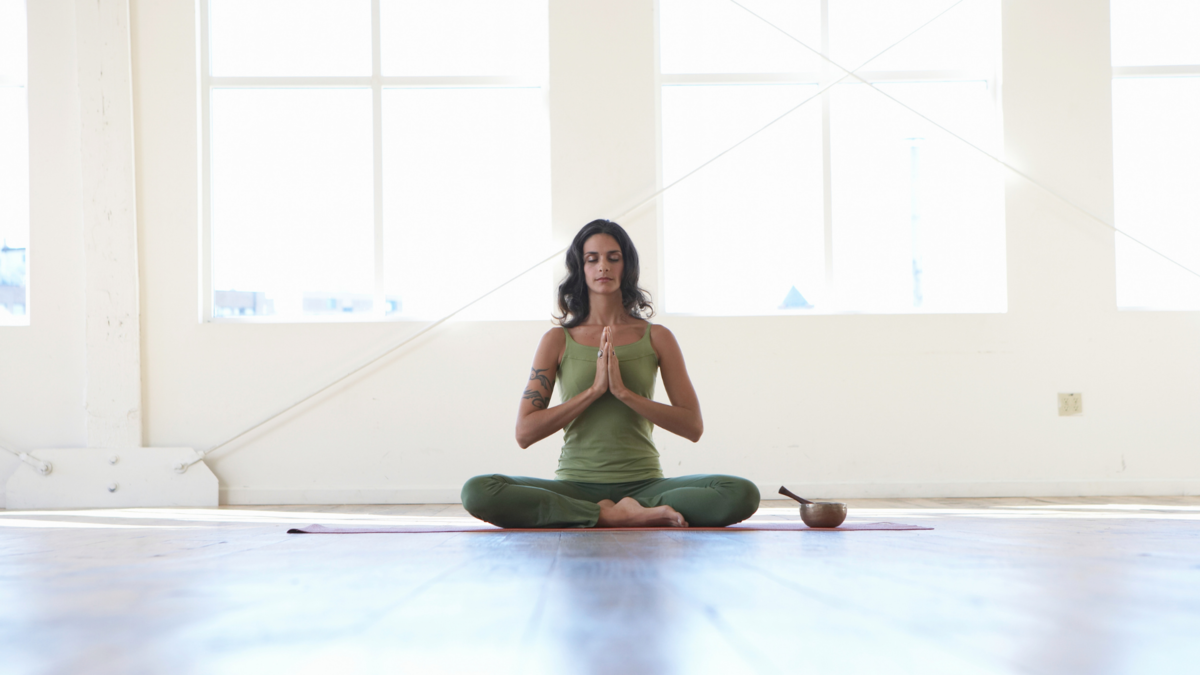
At this point, we already know how beneficial meditation can be in our lives and we are super excited to start exploring this world of transcendence. This is great, and to help you, we will mention some very important tips that will make a difference for those who will start or already practice meditation as a form of balance and healing.
Set a good schedule
It's great to start your day with a nice meditation to prepare you for the rush of the day, but don't hold yourself to that fact. If practicing meditation in the morning was challenging, choose the best time that you can dedicate yourself to it. Remember that you need to focus on the present, so worrying about the after doesn't help.
Choose a quiet place
There are people who feel very comfortable in nature; others, however, are afraid of animals. Choose the place that brings you the most tranquility, there is no point in choosing the top of a hill super quiet, but be afraid of falling. The tranquility before you start will ensure the quality of tranquility during the process.
Find a comfortable position
The meditation position is something that can help or hinder, because if the discomfort is beating, it will be impossible to concentrate on something. There are people who do, even, lying down. The rule is to feel good and choose the right meditation with your position.
Also wear comfortable clothes
Clothes that are tight or that bring us a certain embarrassment are not viable, the idea is to eliminate any kind of external distraction that makes it impossible for you to look inside. It will not be an easy task and it can get even worse if you are uncomfortable for another reason. If you want, you can use a white outfit, as it symbolizes peace and spiritual connection.
Concentrate on your breathing
Breathe in and breathe out, in a guided meditation, these words will be constantly spoken and it is extremely important that you consciously control your breathing during meditation. It is through the breath that many of the benefits of meditation happen, so as much as it may not be emphasized in your chosen way of meditating, pay attention to this.
Make meditation a habit
Meditation is not a remedy for a symptom like a headache, which we take and it goes away. Meditation is the cure and prevention of disease, so it should be a habit, and a good habit is not built overnight, it requires discipline and resilience. As difficult as it may seem at first, it is the constancy that will make it become a habit and this will greatly facilitate its progress.
Enjoy the benefits of meditation!
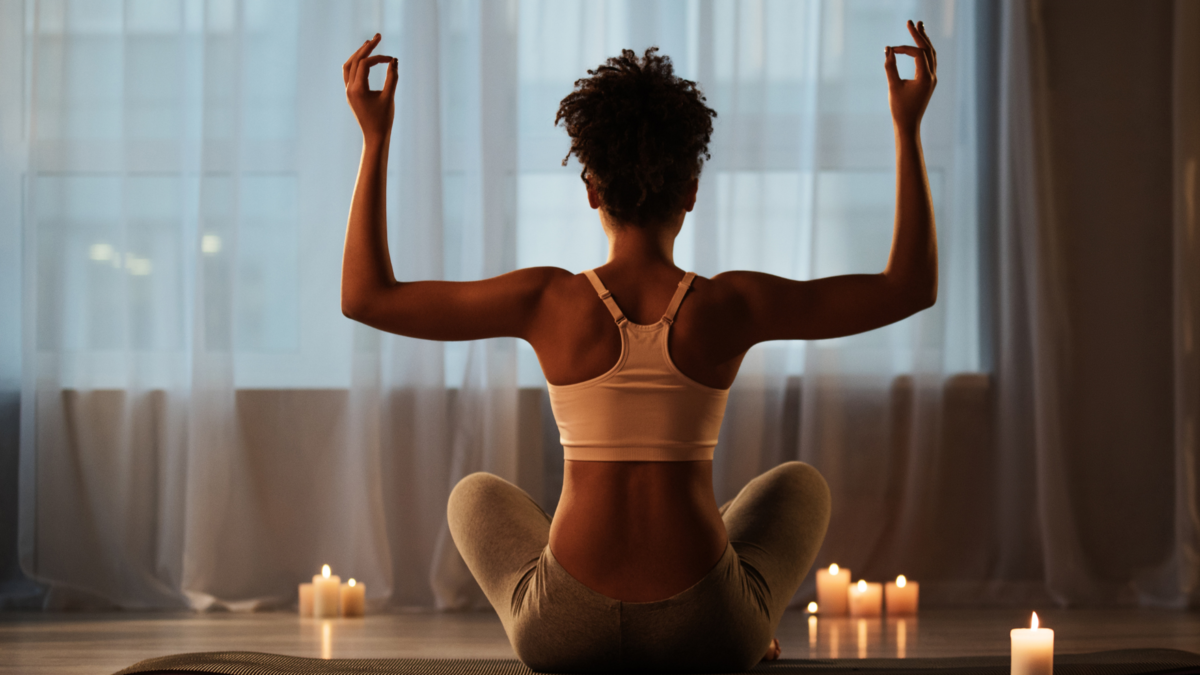
Meditation is a democratic practice open to all, from great kings and scholars to peasants in the rice fields of Japan, everyone uses or has used the benefits of this ancient technique of evolution.
Meditation is not just relaxation, it is something that brings an intense connection with oneself and with our deepest feelings, helping in the emotional and psychic balance, producing countless benefits to the health of body, mind and spirit.
Don't let preconceptions and paradigms stop you from using meditation as a balance point in life. Not having time or not knowing may be just excuses that the brain will create to not start something new. Start slowly, with 5, 10, 15 minutes, and go increasing calmly. The important thing is to start. It only depends on you!

